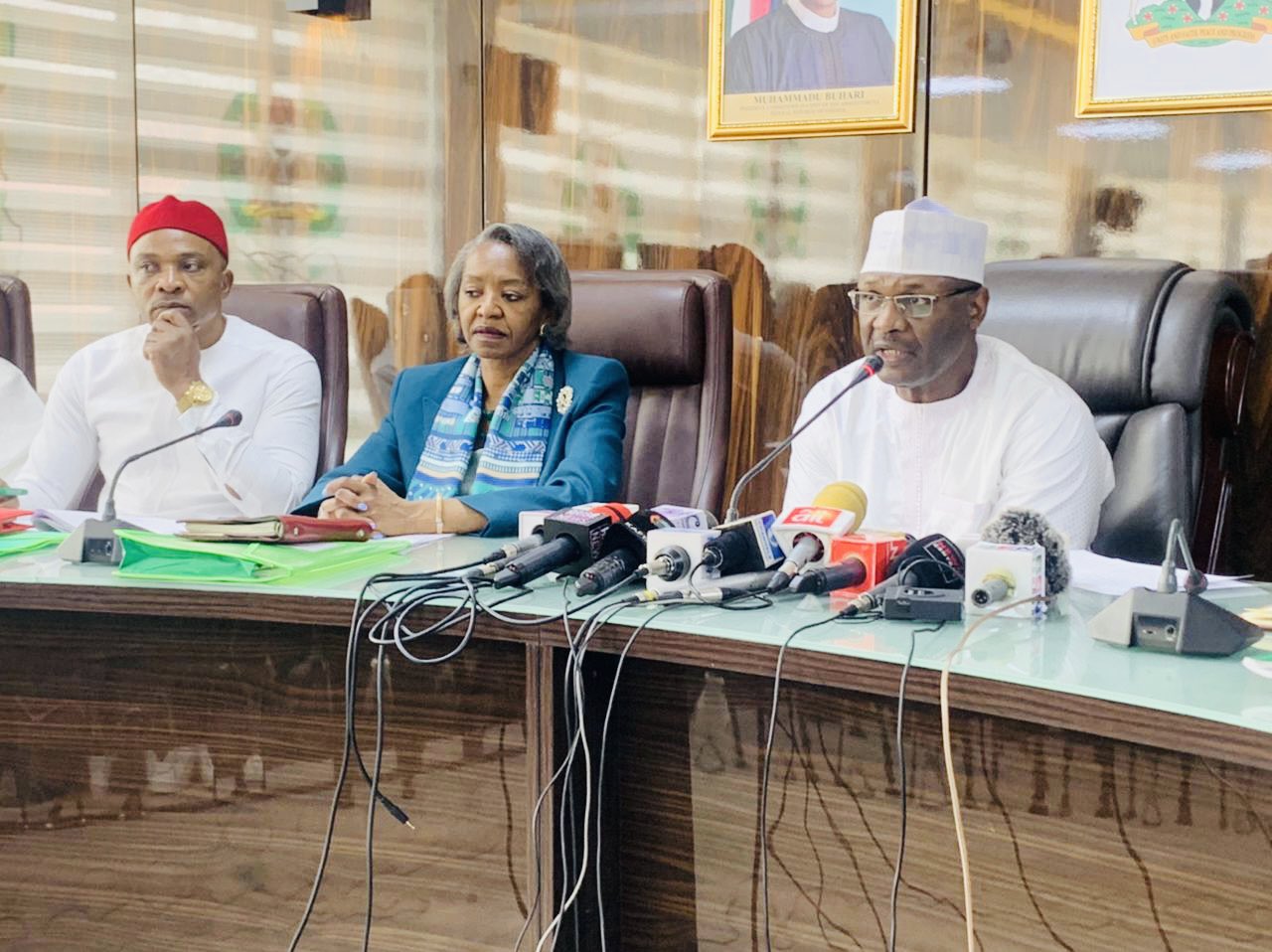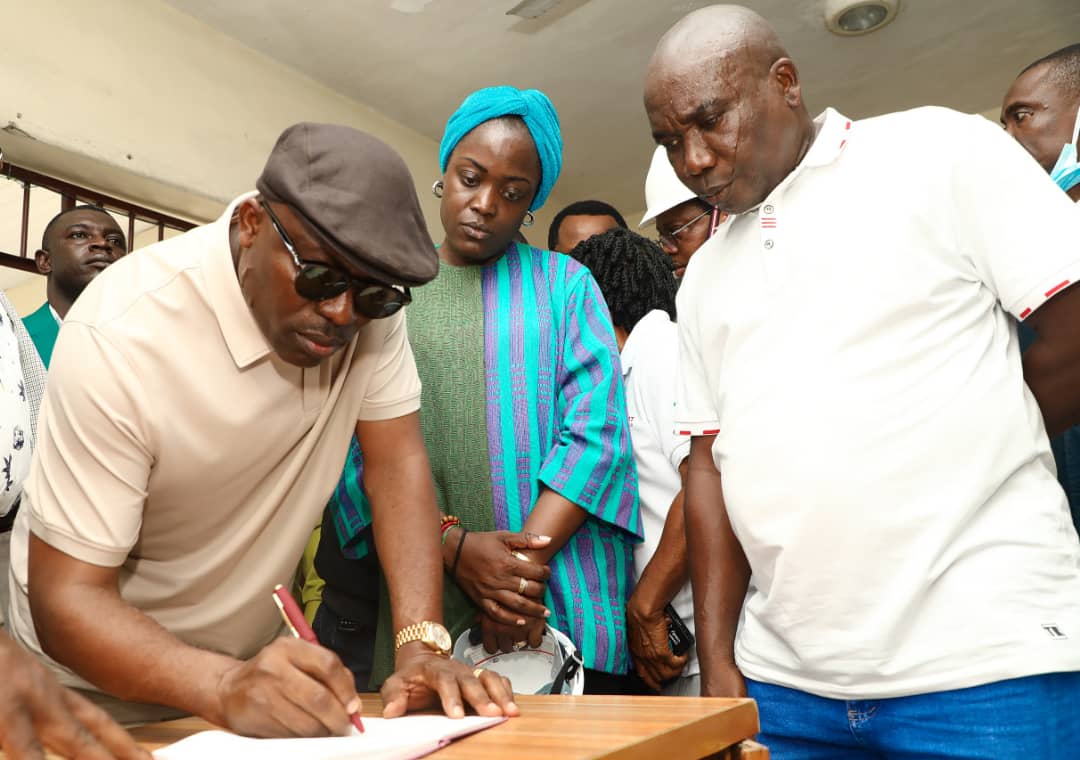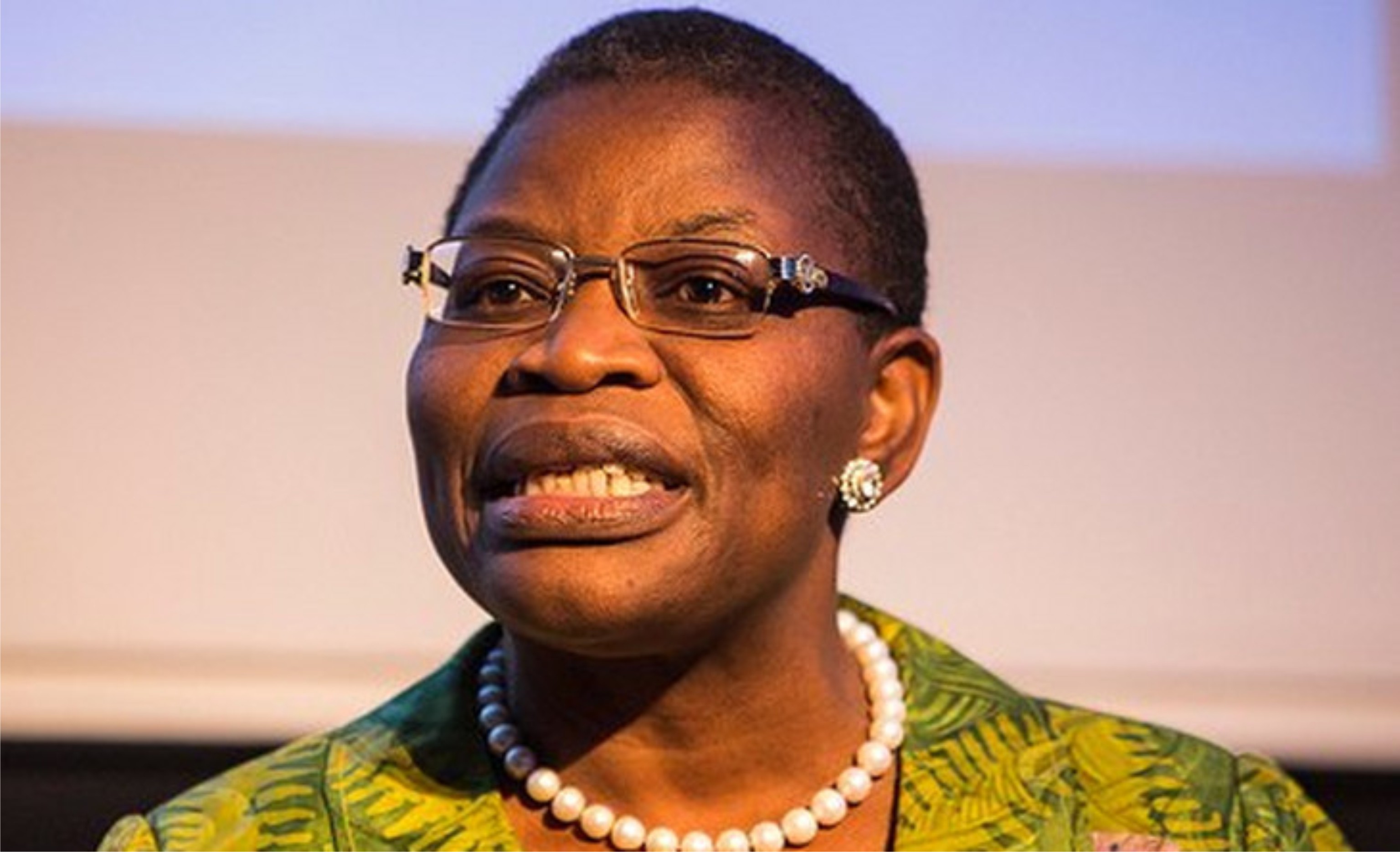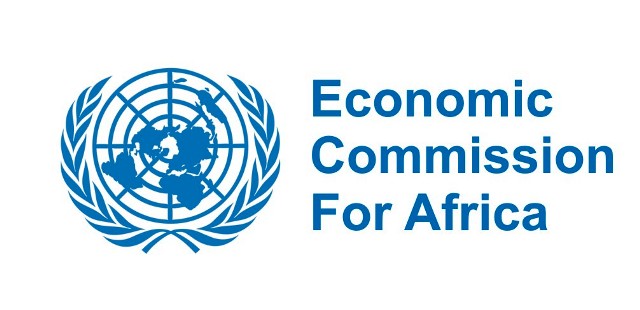News
Electoral Act: I Didn’t Order Senate To Remove Section 84 (12), Buhari Tells Court

President Muhammadu Buhari, yesterday, told a Federal High Court in Abuja that he did not order the Senate to remove the contentious Section 84 (12) from the amended Electoral Act 2022.
Contrary to the claims of the Peoples Democratic Party (PDP) in a suit instituted against him and 12 others on the Electoral Act, Buhari said that he only expressed reservations and concerns in respect of the aspect of the Electoral Act.
The president’s position was contained in a counter affidavit filed at the Federal High Court at the instance of the Attorney General of the Federation AGF and Minister of Justice, Abubakar Malami.
In the joint counter affidavit by Buhari and Malami to debunk PDP’S claims in the suit, the AGF explained that Buhari on February 25, 2022 gave proper, full and unconditional assent to the amended Electoral Act.
The counter affidavit by the President and Malami was filed on their authority by a Senior Advocate of Nigeria, SAN, Oladipupo Okpeseyi and deposed to by Abimbola Akintola, a legal practitioner.
Buhari and Malami averred that the claims of PDP in its suit against them on the Electoral Act are totally false and replete with gross untruths aimed at misleading the court to give judgement against them.
The counter affidavit read in part, “The assent of the 1st defendant (Buhari) to the Electoral Bill given on February 25, 2022 was proper, full and unconditional.
“The 1st defendant (Buhari) assented to the Electoral Bill 2022 on February 25 but did not give conditions or directives to the National Assembly in the manner erroneously deposed to by the plaintiff (PDP).
“At no time did the 1st defendant (Buhari) give any directive to the management or leadership of the National Assembly as regards the removal of Section 84 (12) of the Electoral Act 2022; from the Act.
“Prior to assenting to the Electoral Bill 2022, the 1st defendant (Buhari) merely expressed his observations and concerns about the constraints of Section 84 (12) of the Bill on serving public office holders and political appointees but gave his assent to avoid further delay as time was of essence.
“That the 1st defendant (Buhari) merely expressed his views not only to the National Assembly but to the entire nation as regards the inconsistency of Section 84 (12) of the Electoral Act with other provisions of the Constitution.
“On March 8, 2022, 1st defendant (Buhari) officially wrote the Senate President and House of Representatives Speaker to express his concerns about Section 84 (12) of the Electoral Act and formally requested for amendment to be effected on the section so as to eliminate areas of infarction with the Constitution.
“I’m aware that the National Assembly neither accepted nor acted on the opinion or suggestion of Buhari.
“In this instance, 1st and 2nd defendant, (Buhari and Malami) truly and firmly believe that Section 84 (12) of the Electoral Act disenfranchises and discriminates against Nigerians in public service or public office holders who are political appointees and prevent them from engaging in the electoral process in exercise of their inalienable rights in a participatory democracy.
“That Buhari and Malami have never taken it upon themselves to declare Section 84 (12) or any provisions of the Electoral Act unconstitutional as such is beyond their constitutional power”.
Besides, Buhari and Malami claimed that a Federal High Court in Abia State had in March through a judgement by Justice Evelyn Anyadike struck down the section, and ordered that it be deleted forthwith for being inconsistent with the Constitution.
The two defendants said that both the National Assembly and PDP have since appealed the judgement, adding that it was only the Court of Appeal that can restore the section into the Electoral Act and not any high court.
Insisting that the PDP suit has become academic and constituted abuse of court process on the strength of the pending Court of Appeal matter, Buhari and Malami asked the court to dismiss the PDP suit.
They argued that PDP should not be allowed to take over the functions of the National Assembly since it has no power to amend or enact law.
Buhari and Malami also averred that PDP has nothing to suffer if the contentious section was deleted, adding that removing the section would deepen the practice of democracy and stop discrimination against public servants and public office holders.
Justice Inyang Eden Ekwo of the Federal High Court in Abuja had on March 7 stopped Buhari, AGF and Senate President from tampering with the newly amended Electoral Act 2022.
The judge in a ruling on an ex-parte application by the Peoples Democratic Party (PDP) agreed that the Electoral Act having been assented to by Buhari has become a valid law and cannot be tampered with without following due process of law.
Ekwo agreed with Chief James Ogwu Onoja, SAN, counsel to PDP, that the proper place to challenge the validity of any existing law or the Electoral Act is a court of competent jurisdiction.
Specifically, the court had restrained all the defendants in the suit from removing Section 84 (12) of the Electoral Act or preventing It from being implemented for the purpose of the 2023 general election.
Meanwhile, hearing in the suit marked FHC/ABJ/CS/ 247/2022 has been fixed for May 16 by Ekwo.
News
Fubara Gives Scholarship To 100 Children, Widows Of Fallen Heroes

Rivers State Governor, Siminalayi Fubara, has given scholarship grant to 100 children and widows of fallen heroes of the Nigerian Legion, Rivers State command.
Presenting cheques to the beneficiaries, Fubara, represented by the Secretary to the State Government, Dr. Tammy Danagogo, advised the students to take their studies seriously.
“Make good use of this opportunity, by dint of hard work. Anyone can be great in any field of choice. I want you to know that the future is bright but it is in your hands.
“Tomorrow, you can be the leader that Nigeria needs at both national and state levels, but you must work hard now. Make good use of this opportunity by being focused on your studies,” he admonished the beneficiaries.
The governor further commended the leadership of the Legion in the State for sustaining the scholarship scheme for the widows and children of fallen heroes.
“The best gift you can give to anyone is education. By educating them, you are empowering them to become good leaders of our society. They are the future of our country, continue the good works,” he stated.
The ceremony was also attended by the National Leader of the Nigerian Legion, Maj. Gen. A.M, Jubril (Rtd), the Commissioner of Education, Dr. Ivy Chiemedum, representatives of Service Chiefs, members of the Nigerian Legion in Rivers State and widows of fallen heroes.
News
FG Panics As #EndBadGovernance Protest Begins, Aug 1 …Yoruba Youths, Ezekwesili Call For Caution

There is palpable fear within the government circle as the plan to organise a nationwide protest against economic hardships have gained significant traction on social media.
President Bola Tinubu met with some traditional rulers in the country and governors from the All Progressives Congress (APC) under the aegis of the Progressives Governors Forum at the Presidential Villa, Abuja, yesterday.
The President’s meeting with the APC governors began at minutes past 1pm, while the meeting with the traditional rulers began at about 2:30 pm when the President arrived at the Council Chamber.
Although the agenda of the two meetings was not disclosed, sources revealed that it may not be unconnected to the planned protests scheduled for August 1-10.
The planned protests, organised under the hashtag ‘EndBadGovernance,’ have gained significant traction on social media even as the organisers remain largely anonymous, with no group officially claiming responsibility.
This meeting follows an earlier conclave of the Nigeria Governors’ Forum on Wednesday night and comes after a last-minute cancellation of the National Economic Council (NEC) meeting earlier scheduled for yesterday.
Leading the delegation of royal fathers are the Sultan of Sokoto, Muhammad Sa’ad Abubakar III, and the Ooni of Ife, Oba Adeyeye Enitan Ogunwusi, while the APC governors delegation was led by its chairman and Governor of Imo State, Hope Uzodimma.
Present at the meeting are Vice President Kashim Shettima, Secretary to the Government of the Federation, George Akume; the National Security Adviser, Nuhu Ribadu, and the Inspector-General of Police, Kayode Egbetokun, and Governor Abdulrazaq Abdulrahman of Kwara State who is the Chairman of the Nigeria Governors Forum, and Hope Uzodinma of Imo State, who chairs the Progressives Governors Forum.
The Minister of Finance and Coordinating Minister of the Economy, Wale Edun, and the Minister of Budget and Economic Planning, Atiku Bagudu, also joined President Tinubu at the meeting.
Both the APC governors and traditional rulers did not brief the press after the two separate meetings.
However, the Coalition of Yoruba Youth leaders have called on organisers of the planned nationwide protest to shelve the idea and remain calm.
President-General of the coalition, Dr Tolani Hassan, said in a statement in Lagos, yesterday, that the apex umbrella body for all Yoruba youth associations and organisations had dissociated itself from the protest.
Hassan, who is also the National President, Yoruba Youths Association Worldwide , however, said that the coalition recognised the plight of Nigerians.
“The economy is unfriendly, the cost of living is outrageous and out of the reach of the common man.
“It is also true that the inflation rate is in the double digit and the unemployment rate in Nigeria is alarming.
“So many graduates are out there with no means of survival. The Federal Government has not employed people in the last couple of years.
“However, the leadership of Yoruba youth leaders do not want a repeat of the ENDSARS saga, hence, our call for protest cancellation and calm,” he said.
The president-general urged the organisers to rather employ other measures to make the government across levels understand the economic hardship in the land.
“There should be a more refined manner of getting our leaders to hear our plights other than protest.
“There are agitations and insecurity in every part of the country, any attempt to have a protest now may cause mayhem, which is not the solution to our pressing challenges.
“The apex body of the entire youths in Yoruba land expressly dissociates itself from the planned protest.
“We will defend the entire South-West against any form of destruction by disgruntled elements, who may want to cause havoc in the region, particularly, Lagos state,” Hassan said.
Similarly, Hassan emphasized the need to embrace unity, pointing out that dialogue is the best way while consultation is a better approach.
He, however, pleaded with President Bola Tinubu to listen to the youth -”his children”, who were agitated.
“We love you Sir, Mr President, but we are hungry and unemployed,” the president-general said.
The youth leader advised Tinubu to directly interface with all the youth leaders in the various geo-political zones, saying the use of intermediaries would not bring results.
He called for a National Youth Summit, where all the various youth leaders would discuss with Mr President and address all the prevailing issues.
Stressing the coalition’s continued support for the President, Hassan urged the Federal Government to review both the monetary and fiscal policies, in the interest of the Nigerian masses.
He called for concerted effort by both the public and organised private sector to engage in massive employment generation and reduction of job losses.
“The economy should be friendly to both local and foreign investors. The power sector should be completely overhauled. This is the hub of the economy,” Hassan said.
He called for the review of educational curriculum from primary to tertiary level and inculcation of practical skills, including agriculture, to make Nigerian youths self-reliant.
The youth leader, who appreciated the inclusion of youths in the Federal cabinet, demanded for more, and urged the Federal Government to regularly engage the youth leadership of the various geo-political zones.
“35 per cent slots should be given to youths in the federal cabinet and federal boards appointment,” he said.
Meanwhile, a former Minister of Education, Oby Ezekwesili, has urged the federal and state governments to handle the planned protests with civility and empathy.
In a statement titled “My Position on the Nationwide Protest of our Young Citizens,” and posted on X, yesterday, Ezekwesili highlighted the distress being experienced by many Nigerians, particularly the youth, due to severe economic hardships.
“All reasonable people know that the majority of our citizens—especially the young ones-are distressed on many counts, from biting economic hardship that is prevalent in the country today. They blame it on bad governance and are therefore demanding an end to it,” she stated.
She criticised the reactions of politicians, public officials, and their allies, which she described as undemocratic and lacking empathy.
She pointed out that news of the planned protests has already caused agitation among government officials.
“I hope the Federal Government and its allies can quickly and wisely cease from threatening those among our citizens who wish to exercise their constitutional right of expression, association, and movement through a nationwide protest,” she urged.
The Bring Back Our Girls Convener called on President Bola Tinubu, the National Assembly, and state governors to seize the opportunity presented by the protests to engage with the dissatisfied youths.
She emphasized the importance of protecting and supporting the protesters to ensure peaceful demonstrations.
“Ensure that the protesters are protected and supported by the police and related agencies like the Civil Defence Corps to protest peacefully and orderly in presenting their demands and agitations to the authorities.
“Be guided by the terrible lessons of the mishandling of the #EndSARS protests,” she advised.
Ezekwesili also recommended that the government respond to the protesters with a clear plan to achieve good governance on the issues being raised.
She stressed the need for politicians and public officials to listen and learn from their citizens.
“I hope that our politicians and public officials will heed counsel and allow themselves the humility of listening and learning from their citizens at a time like this,” she added.
Boye Salau
News
ECA Advises African Countries On Rising Indebtedness

The Economic Commission for Africa (ECA) has called on countries to explore reforms on the common debt relief framework to better address rising indebtedness in Africa.
The Executive Secretary, ECA, Mr Claver Gatete, in a statement presented this at a joint press briefing on the margins of the recently concluded 2024 High Level Political Forum (HLPF).
Gatete highlighted the challenges of accessing financing for the continent’s priorities, especially the concessional funds that are long term and cheaper.
He said the reform of global financing system was urgent, as it could mitigate access to critical resources needed for the implementation of the Sustainable Development Goals (SDGs).
The Tide’s source reports that the African Development Bank (AfDB) said that from 2010 to 2023, Africa’s debt increased by 192 per cent.
The AfDB data also showed that African countries paid 163 billion dollars annually with an external debt stock of 1.1 trillion dollars, the highest ever seen,
According to Gatete, this means that by paying the debt, countries would have very little room to implement the SDGs and the next 10-year programme of the African Union (AU).
Gatete highlighted the need for domestic resource mobilisation in Africa to tackle illicit financial flows and improve taxation.
He also emphasised the importance of developing capital markets to provide long-term resources as part of private sector engagement in Africa.
He said: “There are opportunities in restructured green, blue and sustainability linked bonds that can attract more investors to fund climate-related solutions.
“ECA is working with countries to strengthen domestic resource mobilisation through capital markets to improve self-financing and financial sustainability in Africa.”
He said it was crucial to increase fiscal space and address interrelated issues, including peace building and conflict prevention.
“Also the involvement of the youth in sustainable development processes to ensure long term progress, “ he said.
Ms Christina Duarte, Head of the United Nations Headquarters based Office of the Special Adviser on Africa (OSAA), SDG implementation said only 12 per cent of the 140 targets of the SDG have been delivered.
She said to understand the root causes of the financing challenges faced on the continent, the focus should be on sustainable financing and institutional strengthening in Africa to build resilience.
“So, long-term solutions such as tackling economic and financial flows to address Africa’s debt distress and deliver on the sustainable development goals is very critical,’’ she said.
The HLPF Africa Day aims at highlighting key issues stemming from the Africa Regional Forum on Sustainable Development (ARFSD) and other major consultations.
The joint briefing displays how the AU, the UN Office of OSAA and ECA work together to support African member states in implementing the SDGs and the AU’s Agenda 2063.
The HLPF pulls together member states from around the world to forge pathways to accelerate the implementation of the SDGs.
-
News3 days ago
FG Appeals To Youths To Shelve Protest
-
Health3 days ago
Who Unveils Plans To Check HIV/AIDS Discrimination
-
Sports1 day ago
Amapakabo Returns To Abia Warriors As Head Coach
-
Politics1 day ago
Approach Nationwide Protesters With Civility, Ezekwesili Urges FG
-
Business3 days ago
‘Digital Platform, Key To Entrepreneur Success’
-
Niger Delta3 days ago
Delta Assembly Passes Urban, Regional Planning Bill
-
News1 day ago
#EndBadGovernance: Arewa, Yoruba Youths Opt Out
-
Niger Delta1 day ago
Okpebholo: Edo Denies Plan To Cause Crisis On Suspects’ Arrest

